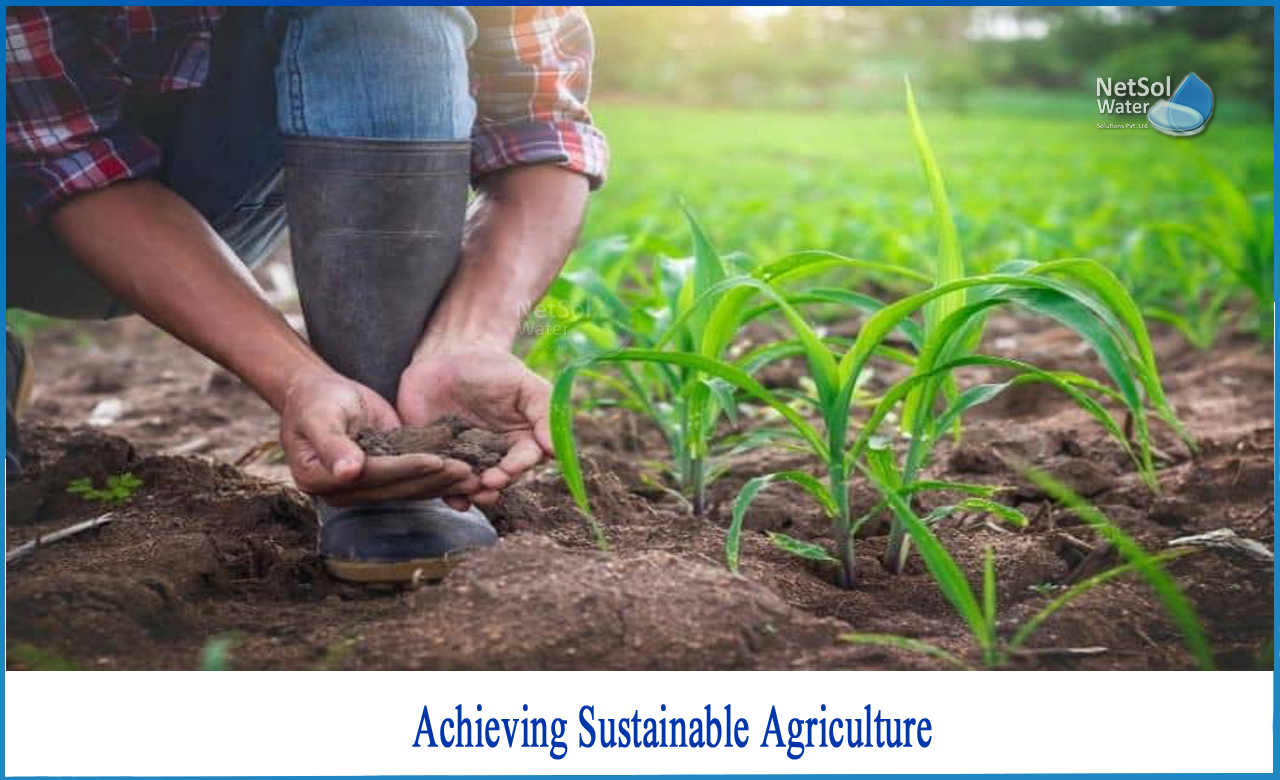Overview
Water can be considered a renewable resource if its consumption, temperature, treatment, and discharge are carefully regulated. Otherwise, it would deplete a non-renewable resource at that site.
Groundwater, for example, is considered a non-renewable resource since it is often extracted from an aquifer at a pace far faster than its relatively slow natural recharge. Water removal from aquifer pore spaces may result in irreversible compaction (subsidence) that cannot be replenished.
How to achieve sustainability in agriculture?
Food is any material that is ingested in order to offer nutritional support to the body. The majority of food is derived from renewable resources. Plants and animals are used to produce food. Hunting may not be the most common source of meat in the contemporary world, but it remains a significant and necessary supply for many rural and distant communities. It is also the only food supply for wild predators.
Although air and sunshine are present everywhere on the planet, crops also rely on soil nutrients and water availability.
What is monoculture?
Monoculture is the practice of producing only one crop at a time in a specific field, which might harm the soil and render it unsuitable or result in lower yields. Monoculture can also lead to the accumulation of diseases and pests that attack a single species.
Sustainable Development has been characterized as "an integrated system of plant and animal production techniques with a long-term site-specific application."
Effect of crop rotation and erosion
Crop rotation and long-term crop rotations provide nitrogen replenishment by alternating deep-rooted and shallow-rooted plants, and can improve soil structure and fertility by alternating deep-rooted and shallow-rooted plants. Returning to natural cycles that annually flood cultivated lands (returning lost nutrients indefinitely) such as the Nile Flooding, long-term use of biochar, and use of crop and livestock landraces that are adapted to less-than-ideal conditions such as pests, drought, or lack of nutrients are other methods to combat lost soil nutrients.
Agricultural activities are a major factor to the global increase in soil erosion rates. Experts project that if erosion continues at its current rate, food output will be cut in half within thirty to fifty years." The Dust Bowl phenomena occurred in the 1930s as a result of severe drought mixed with agricultural techniques that did not include crop rotation, fallow fields, cover crops, soil terracing, and wind-break trees to reduce wind erosion.
Because of mechanized agricultural equipment that allows for deep ploughing, which greatly increases the quantity of soil accessible for transport by water erosion, tillage of agricultural fields is one of the key contributing reasons to erosion.Peak soil indicates how large-scale factory farming practices are harming humanity's capacity to generate food in the future. If no attempts are made to enhance soil management procedures, the availability of arable land may become increasingly difficult.No-till farming, adopting a keyline design, developing windbreaks to retain the soil, and extensive use of compost are all methods for combating erosion.
Conclusion
Fertilizers and pesticides can also cause soil erosion, which can contribute to soil salinity and impede the growth of other species. Phosphate is a key component of the chemical fertilizer most often used in modern agricultural operations. Rock phosphate deposits, on the other hand, are expected to be gone in 50–100 years, according to experts.
Industrial processing and logistics have an impact on agricultural sustainability as well.Crops are sold in many ways and locations, which necessitates the use of energy for transportation as well as the cost of supplies, labour, and transportation.
To achieve sustainability in agriculture, farmers have to follow such practices to protect soil and crop.
Netsol Water is Greater Noida-based leading water & wastewater treatment plant manufacturer. We are industry's most demanding company based on client review and work quality. We are known as best commercial RO plant manufacturers, industrial RO plant manufacturer, sewage treatment plant manufacturer, Water Softener Plant Manufacturers and effluent treatment plant manufacturers. Apart from this 24x7 customer support is our USP. Call on +91-9650608473, or write us at enquiry@netsolwater.com for any support, inquiry or product-purchase related query.



